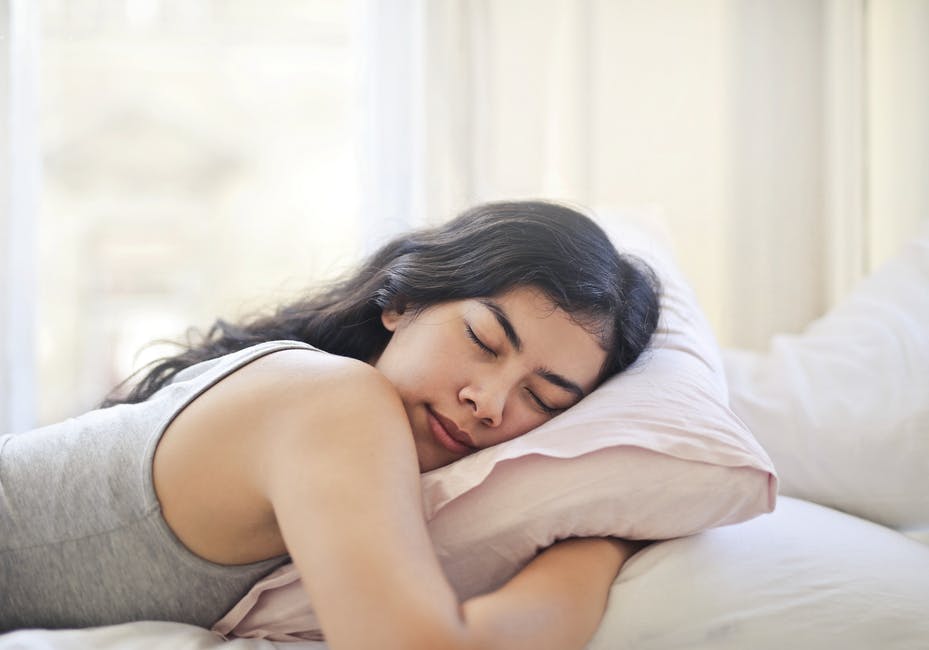
Did you know that around 70 million Americans suffer from sleep disorders?
Millions more suffer from sleep insufficiency, and we probably all struggle to get a good night’s sleep from time to time. A lack of sleep doesn’t just make us feel grouchy first thing in the morning. It’s a major contributor to obesity, depression, and lost work productivity.
Thankfully, healthy sleep aids can make a difference. A few simple changes to your lifestyle and environment can make it easier to get a refreshing night’s sleep. This will support your health and weight loss and set you up for a productive day.
Let’s explore 5 healthy sleep aids that work.
1. Create a Restful Sleeping Environment
Are you someone who takes work into the bedroom? Do you bring paperwork in there to review or read and reply to emails from the comfort of your pillow?
This will not help you to create a restful environment conducive to sleep. One of the most healthy sleep aids is creating a sleep sanctuary in your bedroom. It starts with a great bed setup.
You need a mattress suited to how you sleep and any medical conditions that you have. If you have back or neck pain, make sure your mattress isn’t making the problem worse. Investing in a great mattress is really an investment in better health.
The right pillow is also crucial. If you have neck pain, it could be making the problem worse. The right pillow for you depends on how you sleep.
Next, think about the temperature and the amount of light. Most people sleep better when the room is slightly cooler. Blackout curtains are also a great investment that keeps light disruption to a minimum.
Finally, use quality bedding. If it doesn’t feel like a treat to get into bed, you haven’t got the right bedding. It should be crisp, clean, and inviting, making you want to bed down at the earliest opportunity.
2. Stick to a Healthy Sleep Schedule
When it comes to sleep, our bodies crave consistency. We’ve long been advised to get 8 hours of sleep a night. Most of us probably need around 7, so it’s a good idea to set aside 8 solid hours that are dedicated to sleep.
Try to go to bed and get up at the same time each day. That includes the weekends. This helps you to establish a good routine for your body.
Don’t lay there for hours if you can’t sleep. Get up after twenty minutes, leave the sleep haven of your bedroom and do something else.
Avoid screens during this time. Blue light from devices blocks melatonin, a hormone that makes you sleepy. Try listening to relaxing music or reading.
When you start to feel sleepy, return to the bedroom and try again. If it takes you a long time to get to sleep, resist the urge to sleep in in the morning. Instead, stick to your schedule.
3. Wind Down Before Bed
There are some people who are asleep the moment their head touches the pillow. Most of us need a little help. And it’s crucial to start winding down around 30 minutes or more before you go to bed.
Start doing something you find relaxing at least half an hour before going to bed. This could include relaxation exercises, reading, listening to relaxing music, and stretching.
Avoid bright lights at this time. Transition to soft lighting that helps your body to boost melatonin production, which is the body’s natural sleep support drug.
Finally, ditch the devices. Cell phones, tablets, and laptops keep our brains stimulated and don’t allow us to switch off from work and other concerns. Plus, the blue light can stop us from getting to sleep.
After at least thirty minutes of relaxation, it’ll be much easier to fall into a deep, healthy sleep.
4. Avoid Habits that Disrupt Sleep
What we do in the day can also have a big impact on our sleep.
Exposure to natural light helps to regulate our body clocks. It’s a good idea to get some light exposure early in the day. Try to spend some time outside or at least open your blinds and let the light flood in.
Caffeine is well known for keeping people awake. Try to consume it early in the day and avoid using it as an antidote to poor sleep. Alcohol may seem to have the opposite effect, but it affects the quality of our sleep as well.
Take some time to exercise every day. Moderate aerobic exercise helps us get more slow-wave sleep – that’s deep sleep. It also helps to regulate our mood, which is important for getting to sleep.
Finally, don’t eat too close to your bedtime. If your body is still digesting a heavy meal, you’ll find it more difficult to get to sleep.
5. Try Healthy Natural Sleep Aids
The best healthy sleep aid is one that works for you and fits with your lifestyle.
Chamomile is one of the most popular healthy natural sleep aids out there. It has been used for centuries and is usually taken as a tea or tincture. It helps you to relax and get in the right mental state for sleep.
Another popular healthy sleep aid is melatonin https://www.shopchirothin.com/collections/all-products/products/sleep. It is produced naturally by the body but can also be taken as a supplement. It may help you to fall asleep more quickly and stay asleep for longer.
Healthy Sleep Aids Support a Healthier You
Our busy lives can prevent us from getting enough sleep if we are not careful. Healthy sleep aids include a strict schedule and a dedicated wind-down period. Make your bedroom a sleep sanctuary and avoid habits that will disrupt your sleep.
Getting enough sleep is also crucial if you want to lose weight. The ChiroThin, doctor-supervised weight loss program can help you to lose weight and feel great!
Are you ready to get started on the path to a healthier you? Click here to find a ChiroThin doctor in your area.
